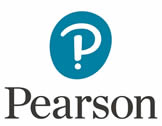
Solitamente, quando si impara a parlare inglese, ci si concentra su come comportarsi nelle conversazioni face to face. La lingua orale, però, non si limita a questo: ci sono molte altre situazioni in cui si parla a voce l’Inglese, ognuna delle quali ha le sue regole e la sua etiquette.
Una telefonata è l’esempio più lampante: se, da un lato, parlare al telefono non è così diverso da conversare di persona, dall’altro dovrai farti capire senza l’aiuto della comunicazione non verbale e puntando tutto sulla chiarezza. In questo articolo troverai qualche consiglio su come sostenere una conversazione al telefono in inglese, con anche esempio specifico. Continua a leggere per saperne di più!
In questo articolo troverai:
- Come rispondere al telefono in inglese, 5 tips
- Colloquio in inglese al telefono se stai cercando lavoro all’estero o in una multinazionale
- Parlare con l’assistenza clienti in inglese
- Fissare un appuntamento in inglese
Come rispondere al telefono in inglese, 5 tips
Come dicevamo, parlare al telefono in sé non è molto diverso da conversare di persona: il tono e il registro da utilizzare sono più o meno gli stessi. Il contesto, però, fa una grande differenza: in una conversazione telefonica la comunicazione non verbale è completamente assente. Ci si deve basare soprattutto sul tono di voce e, per questo, è importantissimo che tu ti faccia capire meglio possibile.
Ecco alcuni consigli su come comportarsi al telefono in inglese:
- Rimani rilassato: telefonare, soprattutto le prime volte, può mettere un po’ di pressione e il tuo livello di inglese potrebbe risentirne. Per andare sul sicuro esercitati il più possibile sia nel listening che nello speaking: ciò ti aiuterà a comprendere il suono delle parole e ad essere fluente.
- Sii sicuro di te: ciò non ti aiuterà soltanto a mantenere il ritmo adatto ma anche, ad esempio, a non farti problemi a chiedere al tuo interlocutore di ripetere quando non hai capito qualcosa.
- Usa un linguaggio comprensibile: ricordati che questa è pur sempre una conversazione orale. Utilizza un registro naturale, come faresti nella vita di tutti i giorni.
- Sii chiaro: la bassa qualità audio di una telefonata può penalizzare la comprensione. Cerca di porre rimedio parlando lentamente e scandendo bene le parole.
- Prendi appunti: ciò ti aiuterà a mantenere alta la concentrazione e avrai un recap al termine della telefonata!
Tenendo a mente queste regole, vediamo alcuni esempi su come ci si comporta nelle situazioni più comuni al telefono in lingua inglese.
Colloquio in inglese al telefono se stai cercando lavoro all’estero o in una multinazionale
Lavorando all’estero o in una multinazionale, ti capiterà di fare molti colloqui di lavoro con diverse aziende. Non sempre, però, sarà possibile farli face-to-face e in molti casi dovrai partecipare proprio per via telefonica.
Non c’è una grande differenza rispetto ad un colloquio normale: dovrai comunque raccontare il tuo background, riassumendo le tue qualità lavorative, parlando dei tuoi studi e delle tue esperienze di lavoro e rispondendo alle domande che ti verranno poste. Allo stesso tempo, è importante che tu cerchi di dare un’ottima impressione, mostrandoti sicuro di te, senza però ingigantire le tue skill.
Ecco un esempio di come si svolge un tipico colloquio di lavoro al telefono in inglese:
Interviewer: Good morning! This is Keith Dartley from ABC Company. Am I speaking with David Jones?
Candidate: Good morning! Yes, this is David Jones. Nice to speak with you.
Interviewer: Nice to meet you too! Could you tell me a bit about your professional background and experience?
Candidate: Sure. I specialize in digital marketing, with over six years of experience. In my most recent role at XYZ Agency, I led a team that executed a targeted social media campaign. I earned my Bachelor’s degree in Marketing from DEF University.
Interviewer: That’s impressive. What motivated you to apply for this position with our company?
Candidate: I’ve always been drawn to ABC Company’s commitment to cutting-edge technology. I believe my skills in data analytics and trend forecasting align well with the goals of the company.
Interviewer: Good to hear. How would you handle a situation where several clients complain about the same issue with a product?
Candidate: I had a similar experience at my previous job. I did a thorough analysis of the reported issue, in collaboration with the product development team. We found out that a software glitch was causing the problem so we implemented a temporary solution while updating the software. This experience has taught me to handle challenges effectively and prioritize quick solutions.
Interviewer: Very interesting. One last question: where do you see yourself professionally in the next few years?
Candidate: I aspire to take on a leadership role in digital marketing, leveraging my skills in data learning and I believe that the opportunities at ABC can help me achieve those goals.
Interviewer: Excellent. Thank you, Mr. Jones. We appreciate your time today.
Candidate: Thank you for the opportunity.
Vuoi migliorare il tuo inglese per lavorare all'estero? Vista la nostra pagina per scoprire di più sul corso dedicato:
Parlare con l’assistenza clienti in inglese
Un’altra situazione telefonica molto comune è quella di rivolgersi ad un servizio clienti per segnalare un disservizio. In questi casi, dovrai sforzarti di esporre il problema in maniera più chiara e diretta possibile, divagando il meno possibile.
Dovrai anche cercare di essere sereno e comprensivo, usando sempre un linguaggio cortese e rispettoso, evitando comportamenti aggressivi.
Ecco come si svolge un tipico dialogo in inglese con l’assistenza clienti:
Customer: Good morning, I am calling to address an issue with my bill. I noticed an unauthorized charge.
Operator: Good morning! I’m sorry to hear this. Can I have your name and the bill reference number, please?
Customer: Certainly. My name is Keith Jones, and the reference number is ABC123.
Operator: Thank you, Mr. Jones. I’m looking through your file. Could you kindly explain which charges you consider unauthorized?
Customer: There is a $50 charge for an extra service that I neither requested nor authorized.
Operator: Thank you. Please wait a moment while I check the details… OK, sir, I’ve checked your bill, and I confirm there’s an error in the charge. I will now proceed with canceling this unauthorized fee and you’ll see the correction in the next bill.
Customer: Great! Thank you for taking care of this!
Operator: I'm glad I could help. If you have any more questions or issues, feel free to call us. Thanks for your patience and understanding.
Customer: Thank you. Have a great day!
Fissare un appuntamento in inglese
Imparare a fissare un appuntamento in inglese è una delle prime cose che dovrebbero essere insegnate in un corso di Inglese. In realtà, qualsiasi lingua tu parli, è vitale che tu sappia come fissare un appuntamento dal medico, proprio nel caso ci sia un’emergenza mentre ti trovi all’estero.
Dobbiamo sottolineare, ancora una volta, quanto sia importante essere chiari in situazioni come questa. Vai dritto al sodo: presentati, descrivi brevemente i tuoi sintomi e fissa l’appuntamento.
- “Hello, I would like to schedule an appointment with Dr. Anderson. I’ve been experiencing persistent stomach pain, lately”
- “Good morning, I’d like to book an appointment with Dr. Martinez. I’ve had a recurring headache for the past week"
- “Good evening, I would like to arrange a consultation with Dr. Patel. I’ve noticed some unusual skin rashes today, and I am a little concerned”
Vediamo ora qualche esempio su come fissare un appuntamento in inglese in circostanze mediche specifiche, come ad esempio:
- Prenotare un appuntamento dal dentista: “Hi, I need to make an appointment with the dentist for a routine check-up”
- Richiedere una visita specialistica: “Hello, I'd like to schedule an appointment with a specialist for my allergy symptoms”
- Prenotare una visita per il controllo della vista: “Good morning, I would like to make an appointment for an eye exam with Dr. Johnson, please”
- Prenotare una visita per i propri figli: “Hi, I'm calling to book an appointment for my daughter. She has a fever and cough”
- Rimandare o annullare un appuntamento: “I need to reschedule my appointment due to a work commitment. What are my options?”
Per fortuna, però, non si fissa un appuntamento solo in circostanze mediche: può accadere anche in altre situazioni di vita quotidiana, alcune decisamente più piacevoli. Di seguito te ne mostriamo qualcuna.
Prenotare al ristorante in inglese telefonicamente
Anche quando prenoti ad un ristorante in inglese devi usare le stesse accortezze di cui parlavamo poco fa: sii rapido, vai dritto al sodo e dai subito tutte le informazioni.
- “Good morning, I’d like to make a reservation for two at your restaurant for this Saturday at 7 PM?”
- “Good afternoon, I'm calling to reserve a table for two this Saturday at 6:45 PM”
- “Hello, could I make a reservation for six people on Sunday, preferably around 8 o'clock?”
- “Hi, I’d like to book a table for two for tomorrow night at 7:30”
- “Good evening, can I reserve a table for four on Wednesday at 6:45 PM?”
E se devi disdire un appuntamento in inglese? Niente paura, la procedura è altrettanto semplice. Scusati per l’inconveniente, senza esagerare e senza entrare troppo nel dettaglio:
- “I’m sorry, but I need to cancel my reservation for this Saturday at 7 PM due to unforeseen circumstances”
- “Unfortunately, I won’t be able to make it to the reservation for two on Friday at 8 o’clock. Can I cancel, please?”
- “I regret to inform you that I won’t be able to keep my reservation for four tomorrow night at 6:30. Can you please cancel it?”
Prenotare un volo in inglese parlando con l’agenzia di viaggi
Durante una telefonata per prenotare un volo in inglese devi soprattutto assicurarti di sapere quali sono tutti i servizi di cui potrai usufruire. Per questo, non devi avere paura di fare molte domande:
- “Hello, I'd like to book a flight from New York to London for two passengers, departing on the 15th of May and returning on the 22nd of May”
- “Hello, I'd like to reserve seats with extra legroom for my upcoming flight to Tokyo. I prefer a window seat. Can you please ensure that's arranged for my flight?”
- “I have a connecting flight. Can you confirm whether my baggage will be automatically transferred, or do I need to claim and recheck it?”
- “Could you please provide information on the baggage allowance for this flight?”
- “Can you provide details about the travel insurance options available for this trip?”
- “I’d like to inquire about the travel insurance options available for my journey to Beijing. Can you provide some details?”
- “In case of any medical emergencies during my trip, how does the travel insurance cover medical expenses?”
Dialogo tra receptionist e cliente al telefono in inglese
Per finire, esaminiamo una delle situazioni telefoniche più comuni: la chiamata alla reception di un hotel. Si tratta di un esempio particolarmente ampio: ci sono molti motivi diversi per contattare la reception di un albergo. Per questo, abbiamo preparato per te tre dialoghi al telefono tra receptionist e cliente al telefono in inglese in tre situazioni diverse.
Ecco, ad esempio, come si potrebbe svolgere una prenotazione al telefono:
Receptionist: Good afternoon! This is Grand Hotel, how may I assist you?
Client: Good evening, I’m planning a trip to Edinburgh next month, and I’d like to inquire about room availability.
Receptionist: Of course! May I know your intended check-in and check-out dates?
Client: I will be arriving on the 15th and leaving on the 20th.
Receptionist: Great! We do have rooms available for those dates. Would you prefer a single or double room?
Client: A double room, please.
Receptionist: Perfect! Your reservation is confirmed for a double room from the 15th to the 20th. Could I have your name, please?
Client: Certainly, my name is Roger Townsend.
Receptionist: Thank you, mr. Townsend. We look forward to welcoming you to Grand Hotel next month.
Ecco, invece, un caso in cui si chiedono informazioni in inglese riguardanti i servizi offerti dall’hotel:
Client: Good afternoon! I’m considering booking a stay at your hotel and I’d like to learn about the services you offer.
Receptionist: Good afternoon, sir! I’d be happy to provide you with information. What specific services are you interested in?
Client: First of all, I would like to know whether you have on-site parking, and if is there a fee
Receptionist: Yes, we do offer on-site parking for our guests, and it’s complimentary. You can park your car securely during your stay.
Client: Excellent. Another thing – do you provide airport shuttle services?
Receptionist: Certainly! We offer complimentary airport shuttle services for our guests. You just need to inform us of your flight details, and we’ll make the necessary arrangements.
Client: Perfect! Lastly, are pets allowed in the hotel?
Receptionist: Yes, we are a pet-friendly hotel. We have designated areas and services to ensure a comfortable stay for our furry friends.
Client: Fantastic! Thanks for the information. I will let you know!
Ci sono altri casi in cui si può aver bisogno di chiamare la reception anche dall’albergo stesso, ad esempio quando si ha bisogno di segnalare problemi nella stanza:
Receptionist: Hello, you have reached Grand Hotel, how may I assist you today?
Client: Hello, this is mrs. Entwistle in room 215. I’m experiencing a couple of issues in my room and was wondering if you could help.
Receptionist: Good evening, madam. I’m sorry to hear you’re having issues. Could you please tell us what problems you're encountering?
Client: The air conditioning doesn’t seem to be working properly.
Receptionist: I apologize for the inconvenience. I’ll immediately send someone from maintenance to check the air conditioning in your room. Is there anything else I can help you with?
Client: Yes, the bathroom light is flickering.
Receptionist: I’ll add that to the maintenance request, and someone will fix it shortly. Anything else?
Client: That’s all for now. Thank you for your prompt response.
Come puoi vedere, anche qui le regole principali da seguire sono sempre le stesse: esporre i propri dubbi o le problematiche in maniera diretta, mantenendo contemporaneamente un tono cordiale.
Se vuoi migliorare il tuo inglese, approfitta della nostra promozione del mese:






